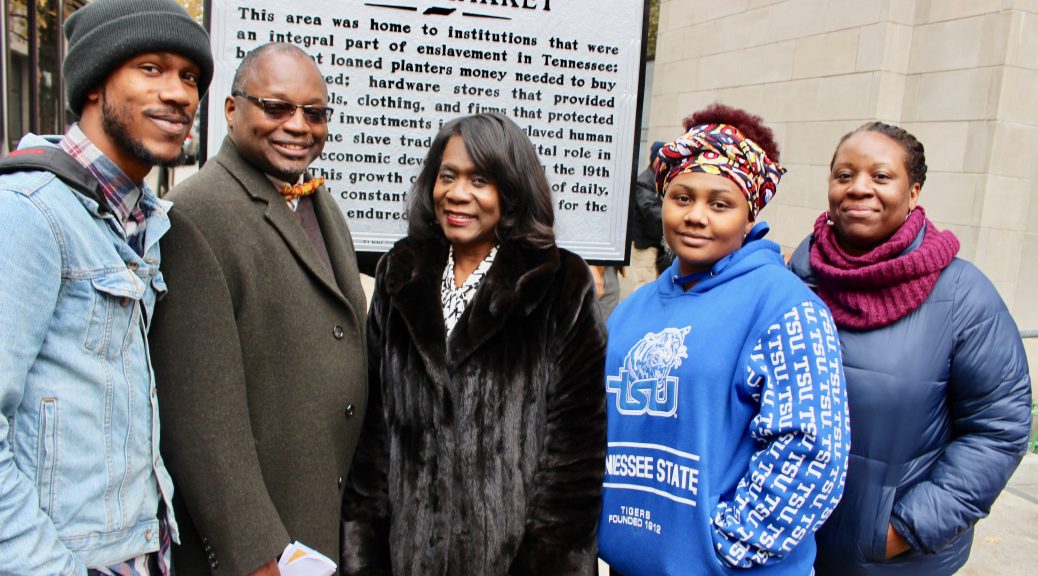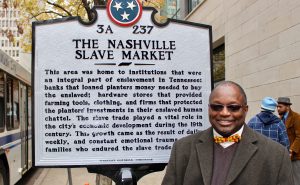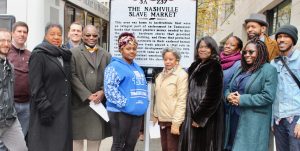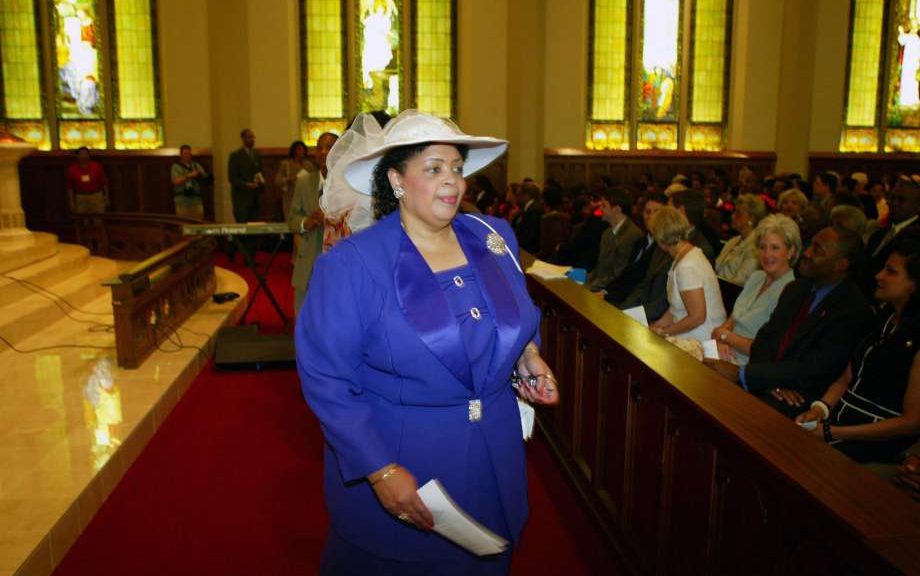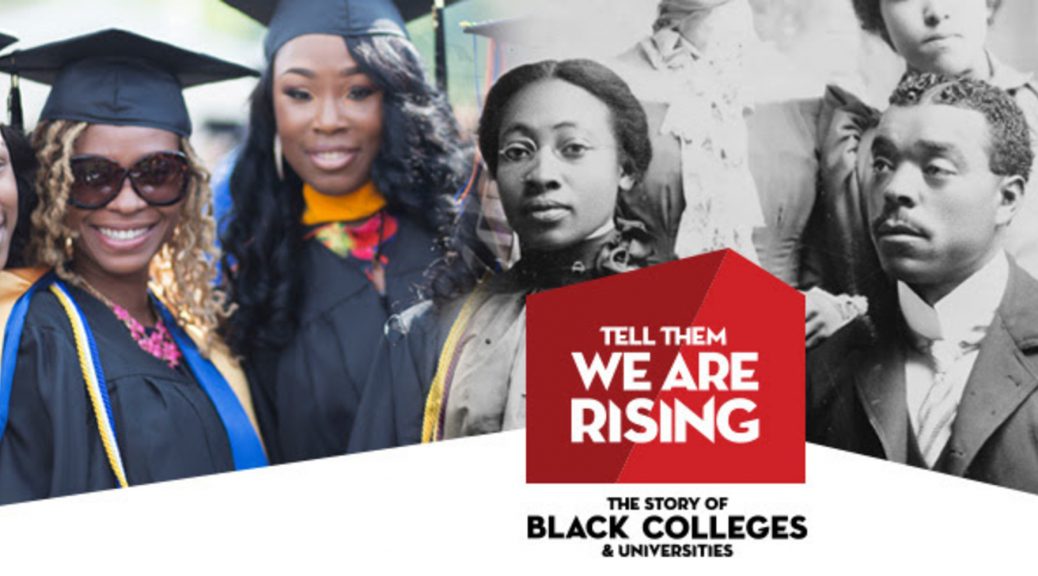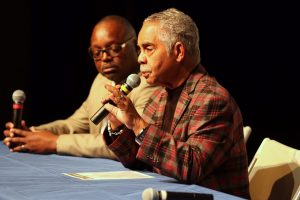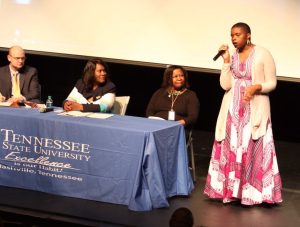NASHVILLE, Tenn. (TSU News Service) – Tennessee State University will honor its veterans with a special virtual program on Nov. 11, despite the pandemic.
The University’s annual Veterans Day program is usually an in-person tradition, but the coronavirus changed that this year, as it has all of TSU’s activities. However, organizers of the virtual program next Wednesday say they expect it to be as spirit-filled as it has in past years.
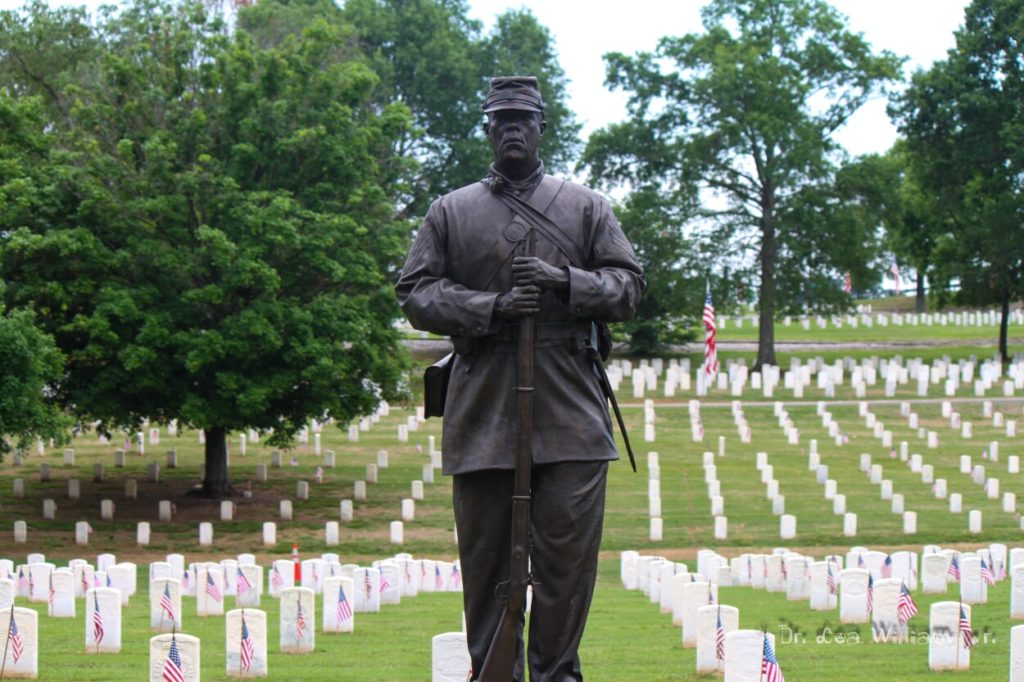
“Despite COVID, we are going to maintain those traditions that are important to our culture, our community, and our nation,” says Dr. Evelyn Nettles, associate vice president for Academic Affairs at TSU. “It is important for us to always remember those who served and protected our democracy.”
Lt. Col. Nick Callaway, commander of the University’s AFROTC Detachment 790, is this year’s keynote speaker.
“I am grateful for the opportunity to recognize the veterans who are currently or were previously employed at the university,” says Callaway. “I also applaud TSU for taking the opportunity to recognize the brave men of the United States Colored Troops. Their fight for freedom in our country’s darkest hour should not be forgotten.”
The United States Colored Troops were regiments of African American soldiers raised by the Union Army during the American Civil War. These troops – who made up about 10 percent of the fighting force in the Union Army – included free African Americans from the North and South, and men who lived their lives as enslaved persons before the war began. By the war’s end, the USCT were a part of the 180,000 African Americans who fought for the Union Army during the Civil War.
“For them, the war was a struggle for liberty, one in which they forced the nation to redefine its notions of freedom and equality under the law,” says Dr. Learotha Williams, a veteran and TSU history professor.
The United States Colored Troops Memorial, located in the Nashville National Cemetery, recognizes the service of the 20,133 black men who voluntarily served in the Union Army in Tennessee during the American Civil War.
To access the program on Wednesday, Nov. 11, at 10:30 a.m. Central, visit https://zoom.us/j/96163866960?pwd=QkV0cXZGZzVOUkNReng5NHUyVksvUT09
Meeting ID: 961 6386 6960
Passcode: 812522
Department of Media Relations
Tennessee State University
3500 John Merritt Boulevard
Nashville, Tennessee 37209
615.963.5331
About Tennessee State University
Founded in 1912, Tennessee State University is Nashville’s only public university, and is a premier, historically black university and land-grant institution offering 39 bachelor’s degree programs, 24 master’s degree programs, and seven doctoral degrees. TSU is a comprehensive research intensive institution with a R-2 Carnegie designation, and has a graduate school on its downtown Avon Williams Campus, along with the Otis Floyd Nursery Research Center in McMinnville, Tennessee. With a commitment to excellence, Tennessee State University provides students with a quality education in a nurturing and innovative environment that prepares them as alumni to be global leaders in every facet of society. Visit the University online at tnstate.edu.

